Related Research Articles
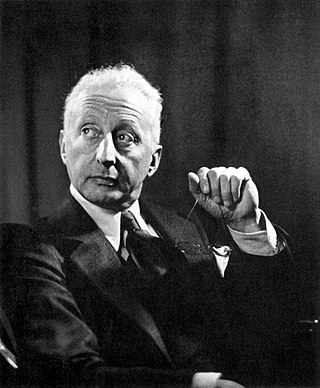
Jerome David Kern was an American composer of musical theatre and popular music. One of the most important American theatre composers of the early 20th century, he wrote more than 700 songs, used in over 100 stage works, including such classics as "Ol' Man River", "Can't Help Lovin' Dat Man", "A Fine Romance", "Smoke Gets in Your Eyes", "The Song Is You", "All the Things You Are", "The Way You Look Tonight" and "Long Ago ". He collaborated with many of the leading librettists and lyricists of his era, including George Grossmith Jr., Guy Bolton, P. G. Wodehouse, Otto Harbach, Oscar Hammerstein II, Dorothy Fields, Johnny Mercer, Ira Gershwin and Yip Harburg.
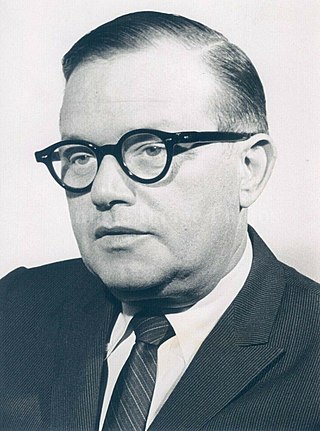
Jule Styne was an English-American songwriter and composer best known for a series of Broadway musicals, including several famous frequently-revived shows that also became successful films: Gypsy,Gentlemen Prefer Blondes, and Funny Girl.

Gladys Marie Smith, known professionally as Mary Pickford, was a Canadian-born American actress, producer, screenwriter and film studio founder, who was a pioneer in the US film industry with a Hollywood career that spanned five decades.
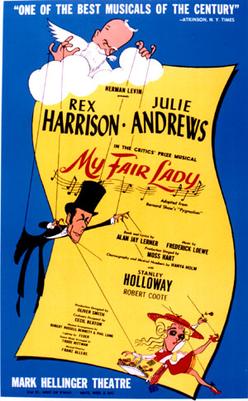
My Fair Lady is a musical based on George Bernard Shaw's 1913 play Pygmalion, with a book and lyrics by Alan Jay Lerner and music by Frederick Loewe. The story concerns Eliza Doolittle, a Cockney flower girl who takes speech lessons from professor Henry Higgins, a phonetician, so that she may pass as a lady. Despite his cynical nature and difficulty understanding women, Higgins grows attached to her.
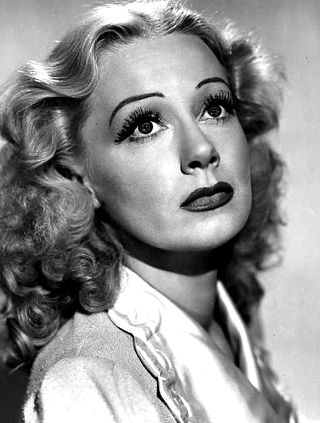
June Havoc was an American actress, dancer, stage director and memoirist.

Gypsy: A Musical Fable is a musical with music by Jule Styne, lyrics by Stephen Sondheim, and a book by Arthur Laurents. It is loosely based on the 1957 memoirs of striptease artist Gypsy Rose Lee, and focuses on her mother, Rose, whose name has become synonymous with "the ultimate show business mother." It follows the dreams and efforts of Rose to raise two daughters to perform onstage and casts an affectionate eye on the hardships of show business life. The character of Louise is based on Lee, and the character of June is based on Lee's sister, the actress June Havoc.

Mary William Ethelbert Appleton Burke was an American actress who was famous on Broadway and radio, and in silent and sound films. She is best known to modern audiences as Glinda the Good Witch of the North in the Metro-Goldwyn-Mayer movie musical The Wizard of Oz (1939).

Olive Thomas was an American silent-film actress, art model, and photo model.

Ellen Tyne Daly is an American actress. She has won six Emmy Awards for her television work, a Tony Award and is a 2011 American Theatre Hall of Fame inductee.

JoAnne Worley is an American actress, comedian, and singer. Her work covers television, films, theater, game shows, talk shows, commercials, and cartoons. Worley is widely known for her work on the comedy-variety show Rowan & Martin's Laugh-In.
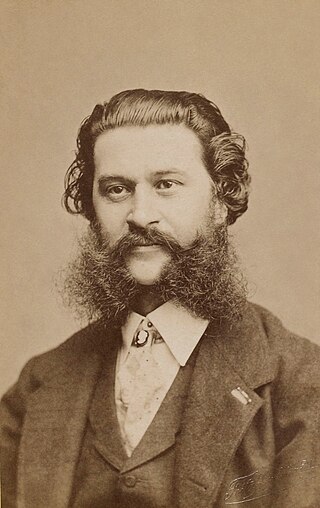
The Gypsy Baron is an operetta in three acts by Johann Strauss II which premiered at the Theater an der Wien on 24 October 1885. Its German libretto by Ignaz Schnitzer is based on the unpublished 1883 story Saffi by Mór Jókai. Jokai later published a novel A cigánybáró in 1885 using an expanded version of this same story.

Half a Sixpence is a 1963 musical comedy based on the 1905 novel Kipps by H. G. Wells, with music and lyrics by David Heneker and a book by Beverley Cross. It was written as a vehicle for British pop star Tommy Steele.

David Belasco was an American theatrical producer, impresario, director, and playwright. He was the first writer to adapt the short story Madame Butterfly for the stage. He launched the theatrical career of many actors, including James O'Neill, Mary Pickford, Lenore Ulric, and Barbara Stanwyck. Belasco pioneered many innovative new forms of stage lighting and special effects in order to create realism and naturalism.

James Sidney Jones, usually credited as Sidney Jones, was an English conductor and composer, who was most famous for composing the musical scores for a series of musical comedy hits in the late Victorian and Edwardian periods. Jones's most famous musical was The Geisha, but several of his pieces were among the most popular shows of the era, enjoying long runs, international tours and revivals.

Janis Paige is an American retired actress and singer.
Henry Martyn Blossom, Jr. was an American writer, playwright, novelist, opera librettist, and lyricist. He first gained wide attention for his second novel, Checkers: A Hard Luck Story (1896), which was successfully adapted by Blossom into a 1903 Broadway play, Checkers. It was Blossom's first stage work and his first critical success in the theatre. The play in turn was adapted by others creatives into two silent films, one in 1913 and the other in 1919, and the play was the basis for the 1920 Broadway musical Honey Girl. Checkers was soon followed by Blossom's first critical success as a lyricist, the comic opera The Yankee Consul (1903), on which he collaborated with fellow Saint Louis resident and composer Alfred G. Robyn. This work was also adapted into a silent film in 1921. He later collaborated with Robyn again; writing the book and lyrics for their 1912 musical All for the Ladies.
What the Daisy Said is a one-reel film made by D. W. Griffith for Biograph in 1910.

Manuel Joachim Klein was an English-born composer of musical theatre and incidental music who worked primarily in New York City.
Alfred George Robyn was an American composer, organist, conductor, and music educator. While his compositional output consisted of a wide range of music, he is best remembered as a composer of light operas and Broadway musicals. He composed the Broadway musicals Princess Beggar (1907), The Yankee Tourist (1907), All for the Ladies (1912), and Pretty Mrs. Smith (1914); many in collaboration with lyricist and playwright Henry Blossom. His compositional output also consisted of fourteen operas, two oratorios, Symphony in D minor, the symphonic poem Pompeii, a piano concerto, a piano quintet, numerous works for solo piano, and over two hundred songs. His best known work is the comic opera The Yankee Consul.
The Yankee Consul, also known as the Lieutenant Commander, is a comic opera in two acts with music by Alfred G. Robyn and a libretto by Henry Blossom. The opera premiered in Boston on 21 September 1903 at the Tremont Theatre. The premiere production was produced by Boston opera impresario Henry Wilson Savage, and starred Raymond Hitchcock as Abijah Booze. The work was staged on Broadway the following year at the 41st Street Broadway Theatre where it ran for a total of 114 performances from February 22, 1904 through July 2, 1904. The opera was adapted into a 1921 silent film of the same name.
References
- 1 2 John Franceschina (2018). "ROBYN, Alfred G[eorge]". Incidental and Dance Music in the American Theatre from 1786 to 1923, Volume 3, Biographical and Critical Commentary - Alphabetical Listings from Edgar Stillman Kelley to Charles Zimmerman. BearManor Media.
- ↑ Donald J. Stubblebine (2015). "The Gypsy Girl". Early Broadway Sheet Music: A Comprehensive Listing of Published Music from Broadway and Other Stage Shows, 1843-1918. McFarland & Company. p. 97. ISBN 9781476605609.
- ↑ "The Gypsy Girl". New York Clipper . April 8, 1905.
- 1 2 Eileen Whitfield (2007). Pickford: The Woman Who Made Hollywood. University Press of Kentucky. p. 38. ISBN 9780813120454.